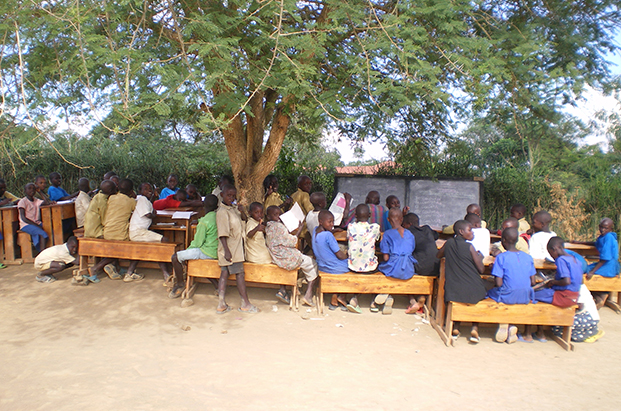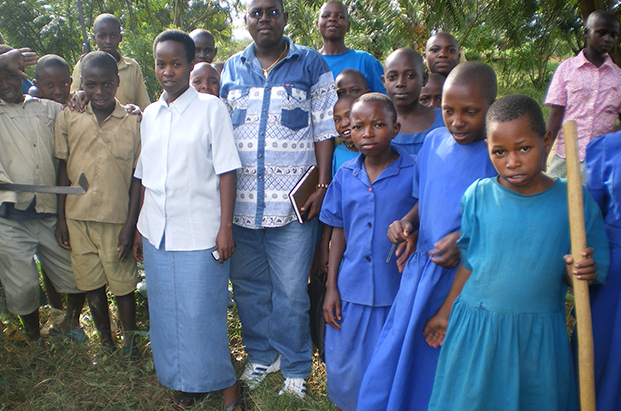Eco-School Initiatives (ESI)
WHAT IS “ECO-SCHOOLS” PROGRAMME ?
• The Eco-schools programme is an international programme for environmental and sustainability education, management and certification.
• It was initiated in 1995 with support from the European commission.
• Eco-schools, which is a programme of the foundation for Environmental education (FEE), provides an ideal way to implement local ; agenda 21 in the school and its neighbouring community. It offers a flexible approach for schools to implement an environmental management system based on the models of ISO14001 or EMAS-Eco-management and Audit Scheme.
• In Rwanda, the Eco-Schools programme is delivered by the FSDS in partnership with ARAMA with DFID financial support through Ministry of Education.
FSDS works with national, regional, international and local institutions as well as with the schools themselves. This provides an excellent vehicle for dissemination of appropriate pedagogic resources, technologies or services, which add value to the programme in supporting schools to achieve their objectives.

WHY “ECO-SCHOOLS” PROGRAMME
• Eco-Schools developed as a response to some of the needs identified at the Earth summit of 1992.It combines a strong formative component with concrete action plans which should result in clear, tangible environmental benefits.
• The programme provides a mechanism for schools, and indeed the students themselves, to understand the importance of establishing and putting in practice appropriate environmental and sustainability policies for the school but also at personal levels.
But governments, at national, regional or local level, have also seen that they can achieve and demonstrate pragmatic results relative to international commitments, such as on Education for Sustainable Development, Global citizenship and local Agenda 21, by endorsing and supporting the Eco-schools programme.
• With its participatory approach, involving learners themselves in both activities and decision-making processes, Eco-schools can be an important instrument for promoting the values of participation and citizenship. Fostering ties with local authorities, organizations, businesses and indeed learners’ families, Eco-schools provides a platform for school-based community development.
• Under a global partnership to promote the programme as an instrument for sustainable development, in particular in developing countries, the Eco-schools programme is recognized by the United Nations Environment Programme (UNEP) as among its “preferred school-based/children and youth global model programmes for environmental education, management, sustainability and certification at the international level.”

WHAT IS NEEDED ?
• Eco-Schools count on support from multi-sector partnerships to add value to the programme and enrich the resources available to schools. Public specialized institutions, non-governmental organizations, business, civil society associations and individuals can all play important roles in providing technical, institutional and financial support to increase the programme’s success at school, national, regional or international level as appropriate.
• In order to promote networking, schools are linked at national and international levels.




